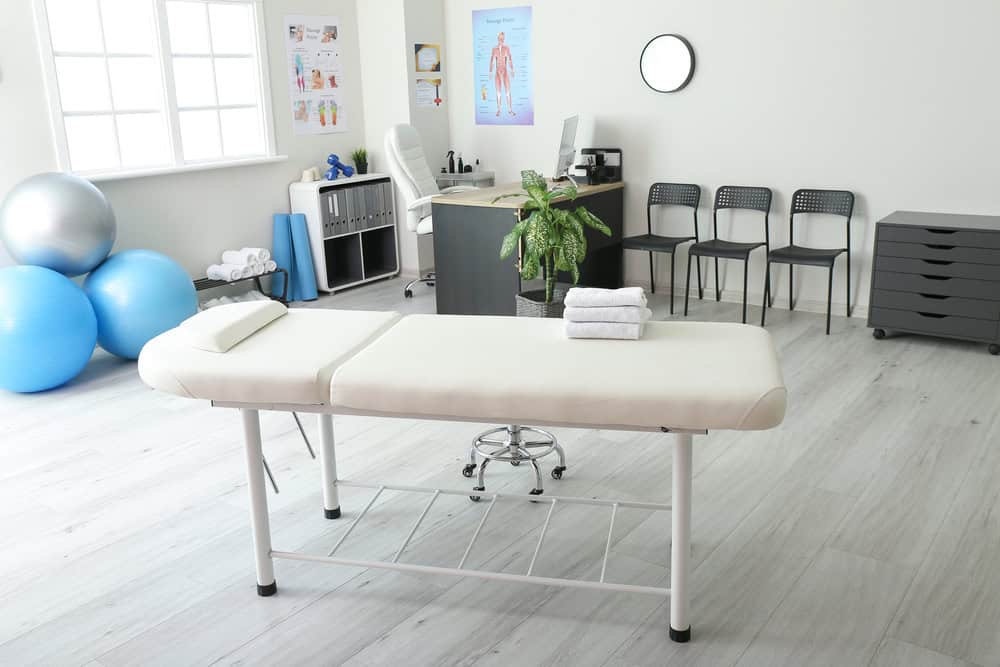
Have you ever wondered if physiotherapy clinics hold any value in senior care? As our loved ones age, maintaining mobility and independence becomes essential. It’s not just about easing aches and pains. It’s about enhancing their quality of life.
Physiotherapy clinics do more than treat symptoms. They offer a holistic approach to health. These clinics understand the unique needs of seniors. They create personalized plans to help with recovery, prevent injuries, and promote overall wellness.
Let’s explore five key reasons these clinics are essential in senior care, and how to choose the right one for you.
Understanding Physiotherapy Clinics
Physiotherapy clinics are necessary in modern healthcare, especially for seniors. These clinics specialize in assessing, diagnosing, treating, and preventing physical impairments, disabilities, and pain. Through manual therapy, exercise, and education, physiotherapists help patients improve their mobility and overall quality of life.
What is Physiotherapy?
Physiotherapy, also known as physical therapy, focuses on restoring and maintaining functional movement. It is a healthcare field dedicated to treating musculoskeletal, neurological, and cardiopulmonary disorders.
Physiotherapists use evidence-based techniques to address a wide range of physical issues. Their comprehensive approach includes personalized exercise programs, manual therapy, and patient education.
The Role of Physiotherapy Clinics in Healthcare
Physical therapy clinics serve as a bridge between hospital care and home recovery. They provide specialized services that are essential for rehabilitation. In these clinics, skilled physiotherapists offer targeted treatments for various conditions.
Clinics often collaborate with other healthcare professionals to provide comprehensive care. This integrated approach ensures that all aspects of a patient’s health are addressed. They are equipped with advanced technology and equipment to facilitate effective treatment.
Types of Physiotherapy Clinics

Different designs of physiotherapy clinics offer unique services and benefits tailored to the needs of seniors. Each of them serves their patients in distinct ways.
Hospital-based Clinics
Hospital-based clinics are integrated within hospital settings, offering comprehensive physiotherapy services. These clinics are staffed by experienced professionals who are well-versed in treating a wide range of conditions.
Hospital-based physiotherapy clinics provide an array of services, including:
- Post-surgical rehabilitation: Focused on recovery after surgeries like hip replacements.
- Chronic disease management: Helping manage conditions such as arthritis, osteoporosis, and Parkinson’s disease.
- Acute injury treatment: Immediate care for injuries sustained from falls or accidents.
- Diagnostic assessments: Utilizing advanced imaging and diagnostic tools to create tailored treatment plans.
Hospital-based physiotherapy clinics offer access to multidisciplinary teams where patients receive coordinated care from doctors, nurses, and specialists. This comprehensive care ensures a seamless transition from inpatient to outpatient services.
Advanced medical facilities provide immediate access to diagnostic and emergency resources, enhancing patient safety and care quality. Continuity of care is also maintained as all medical records are centrally located, aiding in consistent and effective treatment.
Private Practice Clinics
Private practice clinics are independently operated, offering personalized physiotherapy services. These clinics are known for their flexibility and specialized care.
Private clinics often specialize in specific areas:
- Geriatric physiotherapy: Focused specifically on the needs of elderly patients.
- Neurological physiotherapy: Specializing in conditions like stroke or Parkinson’s disease.
- Orthopedic physiotherapy: Concentrating on bone and joint health, mainly for managing conditions like arthritis and fractures.
- Holistic approaches: Including complementary therapies such as acupuncture, massage, and wellness programs.
Private practice clinics provide flexible scheduling, allowing patients to choose appointment times that fit their schedules. They give individual attention, as smaller patient loads allow for more one-on-one time with therapists.
You can ask for home visits, which are particularly beneficial for seniors with mobility issues. They also offer tailored treatment plans, enabling therapists to create highly customized treatment plans based on individual needs and preferences.
Community Health Centers
Community health centers provide accessible physiotherapy services to seniors within their local communities. These centers often focus on preventive care and community-oriented services.
These centers provide various community-oriented services:
- Group therapy sessions: Encouraging social interaction and peer support, which can be motivating for seniors.
- Educational programs: Offering workshops on fall prevention, healthy aging, and chronic disease management.
- Support groups: Facilitating groups for conditions such as arthritis, can provide emotional support and shared experiences.
- Outreach programs: Home visit programs for those unable to travel, ensuring continuous care.
Community health centers are located within local communities, making it easier for seniors to attend regular sessions. They are often subsidized or offer sliding scale fees, making services more affordable. You will often find them well-connected by public transit, reducing transportation barriers for your loved ones.
What Services Do Physiotherapy Clinics Offer?
Physiotherapy clinics offer a wide range of services aimed at improving the physical health and well-being of seniors. These clinics provide essential treatments that cater to various needs, from pain relief to mobility improvement.
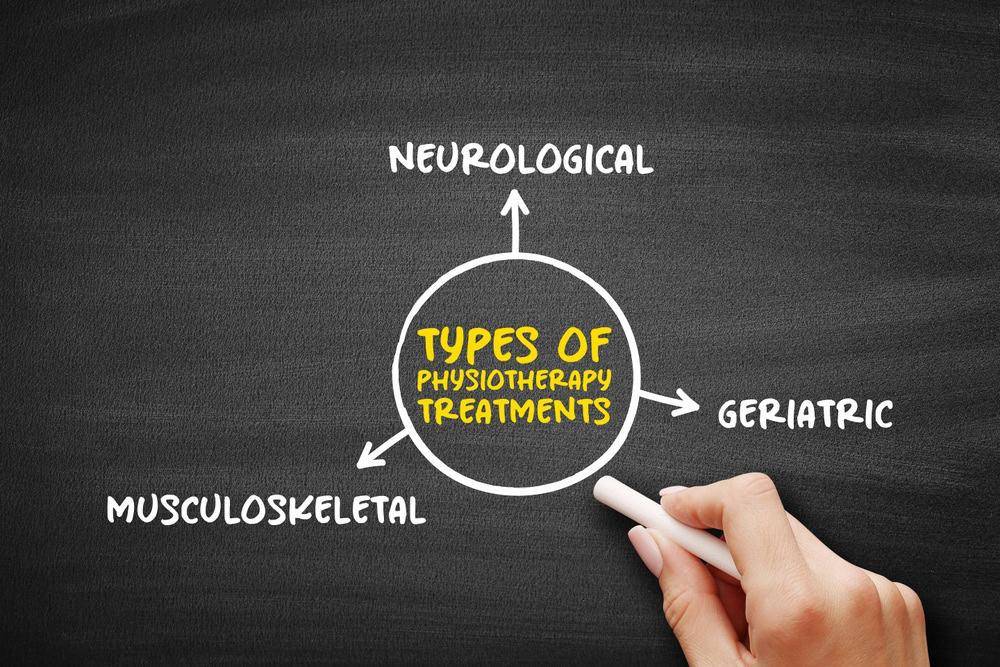
Range of Treatments Available
Physiotherapy clinics provide many treatment options that cater to the diverse needs of seniors.
Exercise Therapy
Exercise therapy is a cornerstone of physiotherapy and involves tailored exercises to enhance strength, flexibility, and balance. This therapy is important for seniors, as it helps maintain muscle mass, improves joint mobility, and reduces the risk of falls.
Some common exercises include:
- Strength Training: Using resistance bands, weights, or body weight to build muscle strength.
- Flexibility Exercises: Stretching routines that enhance the range of motion in joints.
- Balance Training: Exercises such as standing on one leg or using balance boards to improve stability and prevent falls.
These exercises are customized to each person’s abilities and progress over time, ensuring safe and effective improvement in physical capabilities.
Electrotherapy
Electrotherapy involves the use of electrical energy for pain relief and muscle stimulation. This treatment is particularly useful for seniors suffering from chronic pain conditions or muscle weakness.
Electrotherapy has a few types used for therapeutic purposes:
- Transcutaneous Electrical Nerve Stimulation (TENS): Uses low-voltage electrical currents to relieve pain by stimulating nerves.
- Electrical Muscle Stimulation (EMS): Activates muscles through electrical impulses to improve strength and reduce muscle atrophy.
- Ultrasound Therapy: Utilizes high-frequency sound waves to promote tissue healing and reduce pain.
Electrotherapy is non-invasive and can be a great adjunct to other treatments, providing significant pain relief and enhancing muscle function.
Hydrotherapy
Hydrotherapy, or aquatic therapy, involves exercises performed in water. This treatment is highly beneficial for seniors as the buoyancy of water reduces joint stress, making movement easier and less painful.
Hydrotherapy sessions often include:
- Walking or Jogging in Water: Improves cardiovascular health and muscle strength without the impact of land-based exercises.
- Water-Based Strength Exercises: Use of water resistance to perform strength-building movements.
- Range of Motion Exercises: Gentle movements in water to improve joint flexibility and reduce stiffness.
The therapeutic properties of water help in reducing pain, improving circulation, and enhancing overall physical function.
Heat and Cold Therapy
Heat and cold therapy are simple yet effective treatments used to reduce pain and inflammation. These therapies are often used in conjunction with other treatments to enhance their effectiveness:
- Heat Therapy: Application of heat packs, warm towels, or heating pads to relax muscles, improve blood flow, and alleviate chronic pain.
- Cold Therapy: Use of ice packs or cold compresses to reduce swelling, numb sharp pain, and decrease inflammation.
Alternating between heat and cold therapy can be particularly beneficial for managing conditions like arthritis or muscle injuries.
Education and Advice
Providing education and advice is a critical component of physiotherapy. Physiotherapists offer guidance on posture, ergonomics, and lifestyle changes that support overall health and well-being.
This includes:
- Posture Correction: Teaching proper body mechanics to prevent strain and injuries.
- Ergonomic Advice: Recommendations on how to set up home environments to reduce physical strain, such as proper chair height, desk setup, and safe lifting techniques.
- Lifestyle Modifications: Tips on maintaining a healthy lifestyle, including exercise routines, dietary advice, and strategies for managing chronic conditions.
Education empowers seniors to take an active role in their health, promoting long-term benefits and preventing future problems.
Specialized Services
Physiotherapy clinics offer specialized services that address specific health issues, providing targeted treatments and personalized care. These services are particularly beneficial for seniors dealing with complex conditions or recovering from significant health events.
Let’s delve into some key specialized services:
Manual Therapy
Manual therapy involves hands-on techniques to manipulate muscles, joints, and soft tissues. This approach helps in reducing pain, improving mobility, and enhancing circulation.
Techniques commonly used in manual therapy include:
- Joint Mobilization: Gentle movements are applied to joints to restore range of motion and alleviate pain.
- Soft Tissue Massage: Targeted massage to release tension, improve blood flow, and reduce muscle stiffness.
- Myofascial Release: Applying sustained pressure to the connective tissue to relieve pain and improve function.
Manual therapy is particularly effective for seniors with arthritis, chronic pain, or mobility issues, providing immediate relief and long-term benefits.
Neurological Rehabilitation
Neurological rehabilitation is essential for seniors who have experienced stroke, Parkinson’s disease, multiple sclerosis, or other neurological conditions. This service focuses on improving coordination, balance, and motor skills through various exercises and treatments.
Key components of neurological rehabilitation include:
- Balance Training: Exercises designed to enhance stability and prevent falls.
- Motor Skill Development: Activities that improve fine and gross motor skills, such as hand-eye coordination and walking.
- Gait Training: Techniques to improve walking patterns and increase mobility.
The goal of neurological rehabilitation is to help patients regain as much function as possible, enhancing their independence and quality of life.
Post-Surgical Care
Post-surgical care is critical for seniors recovering from surgeries such as joint replacements, back surgeries, or cardiac procedures.
Physiotherapists provide tailored rehabilitation programs that include:
- Pain Management: Techniques to reduce post-operative pain, including manual therapy and electrotherapy.
- Strength Training: Exercises to rebuild muscle strength and support the affected area.
- Range of Motion Exercises: Movements designed to restore flexibility and prevent stiffness.
Effective post-surgical care ensures a smoother recovery, reduces complications, and helps seniors return to their daily activities more quickly.
5 Key Benefits of Physiotherapy Clinics in Senior Care

Physiotherapy clinics have a key role in senior care as they offer specialized services to cater to the unique needs of older adults. Here are five key benefits of physiotherapy clinics in senior care:
Personalized Care Plans
Tailored treatment plans are the cornerstone of effective physiotherapy for seniors. Each older adult has unique health challenges and goals. Physiotherapists conduct thorough assessments to understand the specific needs of each patient. They consider factors such as medical history, current physical condition, and personal goals.
This personalized approach ensures that treatment plans are tailored to address specific issues, whether it’s improving mobility, managing pain, or recovering from surgery. Personalized care plans lead to more effective treatments and better outcomes. In return, it helps seniors maintain their independence and improve their quality of life.
Pain Management
Chronic pain is a common issue among seniors. Physiotherapy offers non-pharmacological approaches to manage this pain effectively. Techniques such as manual therapy, exercise therapy, and electrotherapy can help alleviate pain without the side effects associated with medications.
Physiotherapists use these methods to target the root cause of pain, providing long-term relief. This approach not only reduces reliance on pain medications but also empowers seniors to take control of their pain management. By addressing pain through physiotherapy, seniors can enjoy a better quality of life and engage more fully in daily activities.
Improved Mobility and Balance
As we age, maintaining mobility and balance becomes increasingly important. Physiotherapy plays a vital role in enhancing these aspects. Strengthening exercises, balance training, and gait analysis are commonly used to improve mobility and prevent falls.
Physiotherapists design specific exercise programs that focus on strengthening the muscles, improving joint function, and enhancing coordination. These targeted interventions help seniors move more freely and confidently. Improved mobility and balance lead to greater independence, allowing seniors to perform daily activities with ease and reduce the risk of falls.
Prevention of Falls and Injuries
Falls are a significant concern for seniors and can lead to serious injuries. Physiotherapy clinics take proactive measures to prevent falls through targeted exercises and education. Physiotherapists assess the home environment and suggest modifications to reduce fall risks. They also teach seniors exercises that improve strength, flexibility, and balance.
Regular physiotherapy sessions can identify and address potential issues before they lead to falls. By focusing on prevention, physiotherapy clinics help seniors avoid injuries and maintain a higher level of safety in their daily lives.
Enhancing Overall Well-being
Regular physiotherapy offers comprehensive benefits that extend beyond physical health. It contributes to mental and emotional well-being as well. Engaging in regular physical activity through physiotherapy can reduce symptoms of depression and anxiety. It promotes a sense of accomplishment and boosts self-esteem.
Physiotherapy also fosters social interaction, as seniors often participate in group sessions or engage with their therapists. This holistic approach ensures that seniors not only improve their physical health but also enjoy a better quality of life overall. Physiotherapy supports a well-rounded approach to senior care, addressing the full spectrum of health and well-being.
How to Choose a Physiotherapy Clinic
When you choose the right clinic for your loved one, it will provide a supportive environment for recovery and well-being. Here’s a guide to help you make an informed decision.
Factors to Consider When Selecting a Physiotherapy Clinic
When you choose a physiotherapy clinic for your loved one, several factors should be considered to ensure the best care for seniors. These factors may include:
- Ensure the clinic employs qualified and experienced physiotherapists. Look for certifications, specialized training, and years of practice in dealing with senior-specific conditions.
- Check if the clinic offers a comprehensive range of services tailored to seniors. Services should include manual therapy, exercise programs, electrotherapy, and patient education.
- The clinic should be equipped with modern and well-maintained facilities. Specialized equipment for senior care, such as parallel bars, adjustable treatment tables, and mobility aids, is essential.
- Look for clinics that offer personalized treatment plans. Each senior patient should receive a customized program based on their unique health needs and goals.
- Research the clinic’s reputation. Read reviews from other patients, especially seniors. Positive feedback and testimonials can provide insight into the quality of care provided.
- The clinic should be easily accessible, especially for seniors with mobility issues. Consider the proximity to public transport and the availability of parking.
- Verify if the clinic accepts your insurance plan and offers flexible payment options. Understanding the cost and coverage beforehand can prevent financial stress.
How to Find a Physiotherapy Clinic Near You
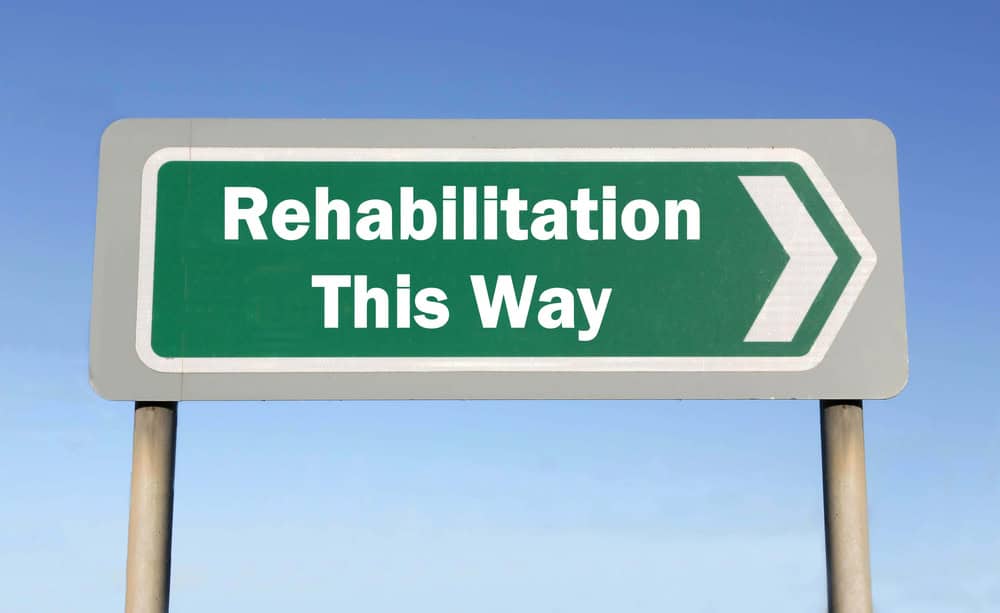
When you know what you’re looking for, it’s easy to find a nearby physiotherapy clinic that meets your needs:
- Start with an online search using keywords like “physiotherapy clinic near me” or “senior physiotherapy services.” Websites like Google Maps or Yelp can provide a list of local clinics with ratings and reviews.
- Ask your primary care physician or specialist for recommendations. They often have a network of trusted clinics.
- Utilize community resources such as senior centers, local health departments, and libraries. They often have directories or can suggest reputable clinics.
- Talk to friends, family, and neighbors. Personal recommendations can lead you to reliable clinics.
- Check with professional associations like the American Physical Therapy Association (APTA). Their directories list certified and accredited physiotherapists.
Questions to Ask When Scheduling an Appointment
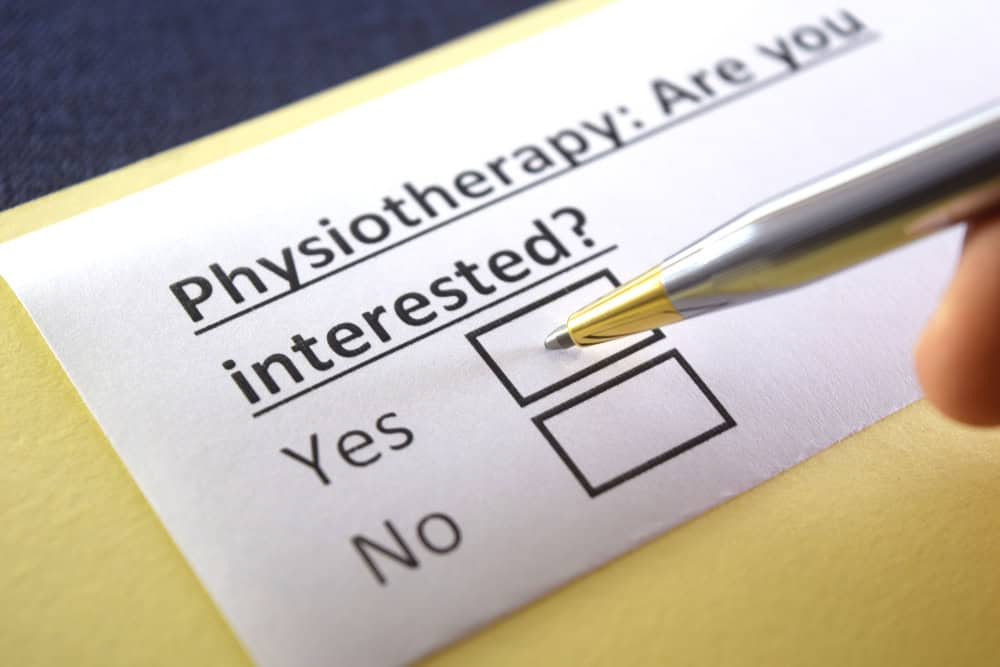
If you want to ensure you receive the best possible care from a physiotherapy clinic, ask the right questions:
- What are the qualifications of the physiotherapists?
Inquire about their educational background, certifications, and experience with senior patients.
- What is the clinic’s approach to treatment?
Understand their methodology and how they tailor treatments to individual needs.
- What types of conditions do you specialize in?
Ensure the clinic has experience in treating conditions relevant to seniors, such as arthritis, balance disorders, and chronic pain.
- What should I expect during the first visit?
Ask about the initial assessment process, duration of the session, and any preparations needed.
- How do you develop treatment plans?
Find out if they create personalized plans based on thorough assessments and patient goals.
- What are the costs involved?
Discuss the pricing for sessions, any additional fees, and insurance coverage.
- What measures do you take for patient safety and hygiene?
Given the vulnerability of seniors, ensure the clinic follows strict hygiene protocols and safety measures.
How to Access Physiotherapy Services
Accessing physical therapy services is vital for seniors to maintain mobility and improve their quality of life. Knowing all the options helps you make sure that your loved ones receive the care they need without unnecessary stress.
Let’s dive into the key aspects of accessing physiotherapy services:
Insurance Coverage for Physiotherapy

Insurance coverage for physiotherapy can significantly reduce out-of-pocket expenses. Seniors should first review their health insurance policies to determine what physiotherapy services are covered. Many health insurance plans, including Medicaid, offer some level of coverage for physiotherapy.
Seniors with supplemental insurance or private health insurance should also review their policies for additional benefits. These details can help seniors make informed decisions and maximize their benefits.
Direct Access to Physiotherapy Services
Direct access to physiotherapy services means that patients can seek treatment without a referral from a doctor. This streamlines the process, making it easier and faster for seniors to receive the care they need. Many states in the U.S. and other countries now allow direct access to physiotherapists.
This convenience is particularly beneficial for seniors who may have mobility issues or chronic pain that requires immediate attention. By removing the need for a referral, direct access reduces wait times and helps seniors begin their treatment plans sooner. Clinics often offer flexible scheduling and home visits, further enhancing accessibility.
Future Trends in Physiotherapy Clinics
With the growing elderly population, physiotherapy clinics are adapting to meet new demands and challenges.
Advancements in Technology and Treatment Approaches
Innovative technologies are revolutionizing physiotherapy. New devices and software enhance the precision and effectiveness of treatments. For instance, wearable technology monitors patients’ movements, providing real-time feedback to both patients and therapists. These wearables track progress, ensure exercises are performed correctly, and reduce the risk of injury.
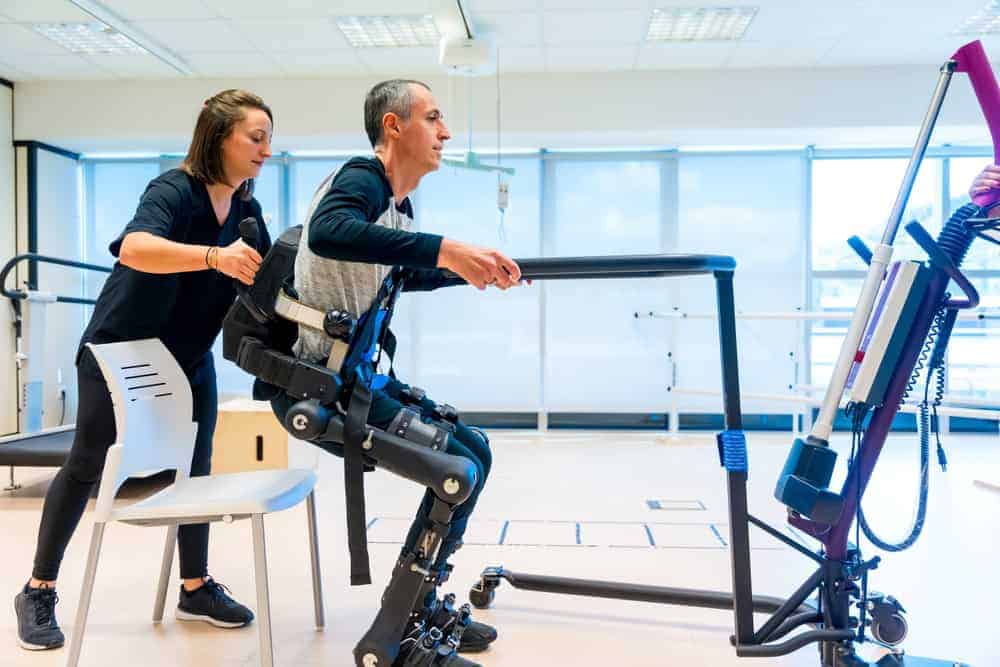
Robotics also play a significant role. Robotic exoskeletons assist with mobility and rehabilitation exercises, making it easier for seniors to regain strength and independence. These devices are particularly beneficial for those recovering from strokes or severe injuries.
Integration of Virtual Physiotherapy Services
Telehealth platforms enable patients to receive treatment from the comfort of their homes. This is especially important for seniors with mobility issues or those living in remote areas.
Virtual sessions offer the same level of care as in-person visits. Therapists guide patients or their caregivers through exercises via video calls, ensuring proper form and technique. These sessions are convenient and flexible, allowing patients to schedule appointments that fit their routines.
Virtual physiotherapy also includes access to online resources and exercise programs. Patients can follow these programs at their own pace, reinforcing their in-clinic treatments.
Focus on Wellness and Preventive Care
The shift towards wellness and preventive care is reshaping physiotherapy clinics. Instead of just treating injuries, clinics now focus on preventing issues before they arise. This helps seniors stay active and healthy longer. Wellness programs include strength training, balance exercises, and flexibility routines to address muscle loss and joint stiffness. These reduce the risk of falls and other injuries in the elderly.
Preventive care also involves education, with clinics offering workshops on nutrition, posture, and ergonomic practices. Educating seniors empowers them to make healthier daily choices. Mental health is also integrated into wellness programs. Physiotherapists work alongside psychologists to address the emotional aspects of aging. This holistic approach ensures seniors receive comprehensive care, addressing both physical and mental well-being.
Conclusion
Physiotherapy clinics play a significant role in senior care. They provide specialized treatments to help seniors maintain mobility, manage pain, and improve overall health. With advancements in technology and a focus on preventive care, these clinics are more equipped than ever to meet the needs of an aging population.

If you’re clueless about finding the right physiotherapy clinic for your loved ones, Amy’s Eden Senior Care can help you right away. We’re Family, Not Just Care. We offer comprehensive support to connect you with top physiotherapy clinics. Contact us today, so we can guide you towards a healthier, more active lifestyle.




